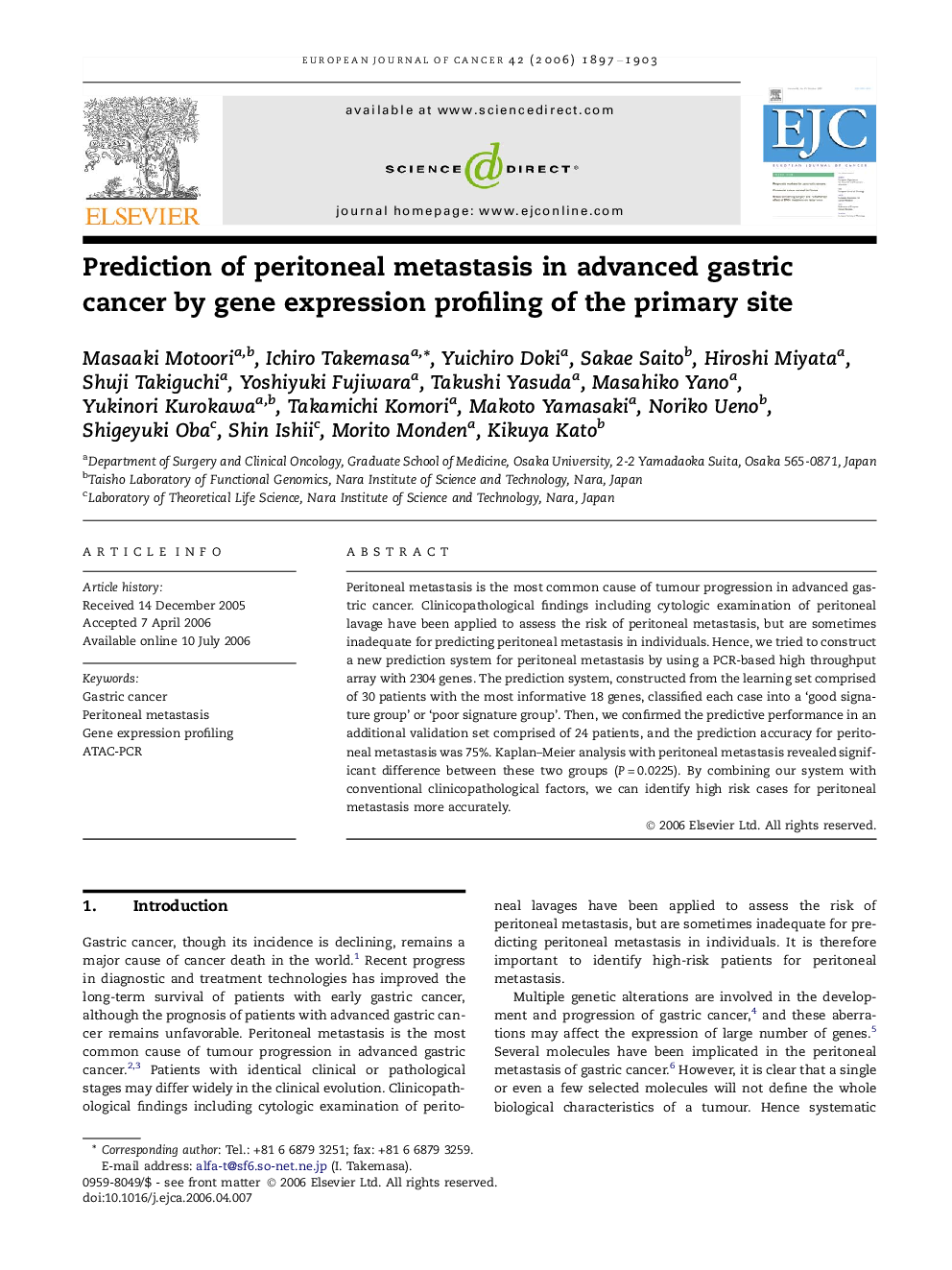| Article ID | Journal | Published Year | Pages | File Type |
|---|---|---|---|---|
| 2125136 | European Journal of Cancer | 2006 | 7 Pages |
Peritoneal metastasis is the most common cause of tumour progression in advanced gastric cancer. Clinicopathological findings including cytologic examination of peritoneal lavage have been applied to assess the risk of peritoneal metastasis, but are sometimes inadequate for predicting peritoneal metastasis in individuals. Hence, we tried to construct a new prediction system for peritoneal metastasis by using a PCR-based high throughput array with 2304 genes. The prediction system, constructed from the learning set comprised of 30 patients with the most informative 18 genes, classified each case into a ‘good signature group’ or ‘poor signature group’. Then, we confirmed the predictive performance in an additional validation set comprised of 24 patients, and the prediction accuracy for peritoneal metastasis was 75%. Kaplan–Meier analysis with peritoneal metastasis revealed significant difference between these two groups (P = 0.0225). By combining our system with conventional clinicopathological factors, we can identify high risk cases for peritoneal metastasis more accurately.
